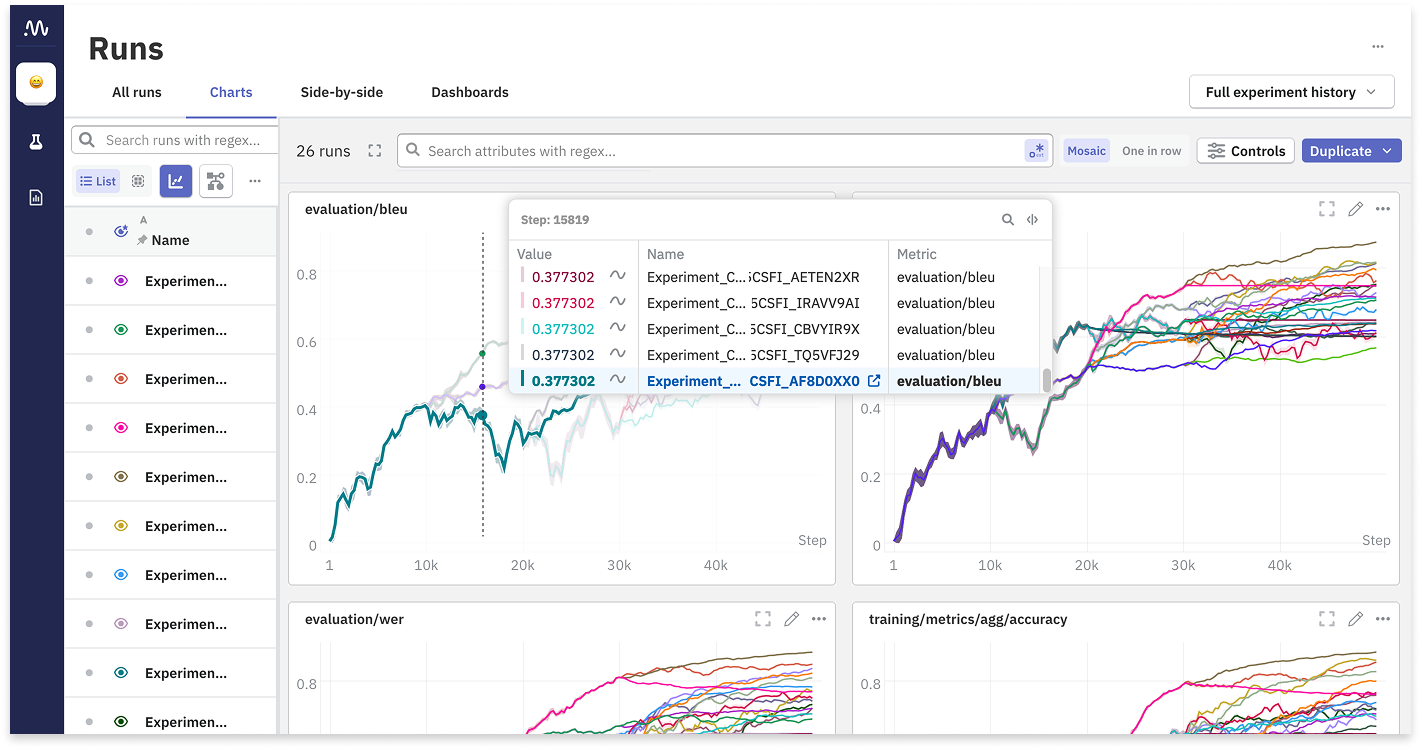Neptune shuts down on March 5, 2026.
Export your workspace data now to avoid permanent loss - exports can take days to weeks and any delay increases the risk that your data won't be fully downloaded before shutdown.
See timelines, export instructions, and migration guides in the Transition Hub.

Neptune documentation
Learn how to use Neptune, the most scalable experiment tracker
for teams that train foundation models.